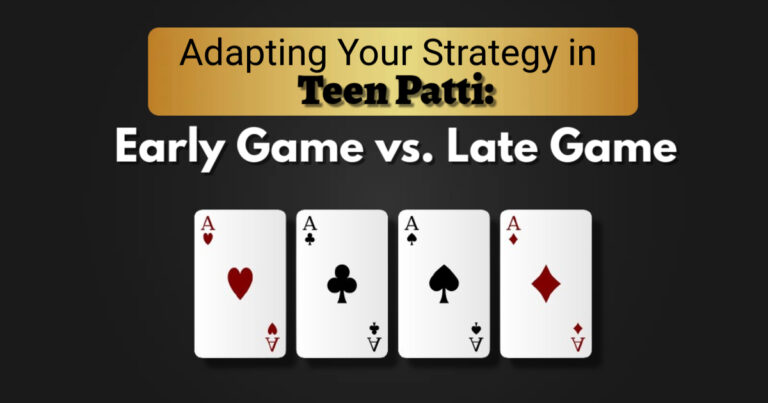Why Young Indians Are Falling in Love with Online Poker
In recent years, online poker has experienced a significant surge in popularity among young Indians. This trend is driven by a combination of technological advancements, cultural shifts, and the allure of skill-based gaming like the Best Rummy game. As the digital landscape evolves, online poker has transformed from a niche pastime into a mainstream activity, captivating the interest of millennials and Gen Z across the country.

The Digital Revolution and Accessibility
India’s rapid digital transformation has played a pivotal role in the rise of online poker. With over 1.2 billion internet users as of 2023, and projections indicating growth to 1.6 billion by 2050, the country’s online infrastructure has become increasingly robust . The proliferation of affordable smartphones and the expansion of 4G and 5G networks have made online gaming accessible to a vast segment of the population.
This accessibility has enabled young Indians to engage with online poker platforms anytime and anywhere, similar to the rise in popularity of Teen Patti Stars. Whether during commutes, study breaks, or late-night sessions, the convenience of mobile gaming has contributed to the game’s widespread appeal.
Perception of Poker as a Skill-Based Game
A significant factor attracting young Indians to online poker is the perception of the game as one of skill rather than chance. Unlike traditional gambling, poker requires strategic thinking, psychological insight, and mathematical acumen. This distinction has been reinforced by legal interpretations in India, where certain courts have recognized poker as a game of skill, differentiating it from games of pure chance .
This recognition has not only legitimized online poker but has also attracted a demographic that values intellectual challenges. Young professionals and students are drawn to the game’s complexity, viewing it as a mental sport that rewards practice and strategy.
Economic Opportunities and Professional Aspirations
The potential for financial gain has further fueled the interest of young Indians in online poker. With the emergence of professional poker players in the country, the game is increasingly seen as a viable career path. Players like Kunal Patni, who transitioned from banking to professional poker, exemplify the possibilities within this domain.
Online platforms host tournaments with substantial prize pools, offering players the chance to earn significant sums. This prospect of monetary reward, combined with the game’s skill-based nature, has made online poker and poker site platforms attractive options for those seeking alternative career opportunities.
Community and Social Engagement
Beyond individual pursuits, online poker has fostered a sense of community among players. Platforms often feature chat functions, leaderboards, and forums, allowing users to interact, share strategies, and build networks. This social aspect resonates with young Indians who value connectivity and shared experiences.
Moreover, the rise of poker clubs and offline poker tournaments has extended the game’s reach beyond the digital realm, creating spaces for enthusiasts to gather and compete in person . These events further solidify the communal aspect of poker, enhancing its appeal among the youth.

Marketing Strategies Targeting Millennials and Gen Z
Online poker platforms have employed targeted marketing strategies to attract younger audiences. By leveraging social media, influencer partnerships, and culturally resonant campaigns, these platforms have effectively engaged millennials and Gen Z. Promotional content often emphasizes the game’s strategic elements, aligning with the values and interests of the target demographic .
Additionally, the incorporation of gamification elements, such as rewards systems and achievement badges, caters to the preferences of younger users accustomed to interactive digital experiences.
Challenges and Responsible Gaming
Despite its growing popularity, online poker in India faces challenges, particularly concerning regulation and responsible gaming. The legal status of online poker varies across states, creating a complex landscape for players and operators. While some regions have embraced the game, others have imposed restrictions, leading to uncertainties within the industry.
Furthermore, the potential for addiction and financial loss necessitates the implementation of responsible gaming measures. Platforms have introduced features such as self-exclusion options, deposit limits, and awareness campaigns to promote healthy gaming habits . These initiatives aim to safeguard players, particularly the youth, from the adverse effects of excessive gaming.
Conclusion
The ascent of online poker among young Indians is a multifaceted phenomenon, rooted in technological advancements, the rise of poker apps, cultural shifts, and the game’s intrinsic appeal as a skill-based activity. As the digital landscape continues to evolve, and with appropriate regulatory frameworks and responsible gaming practices in place, online poker is poised to remain a significant aspect of India’s gaming culture.
By embracing the strategic depth and community aspects of the game, young Indians are not only finding entertainment but also avenues for personal growth and professional development within the realm of online poker.








